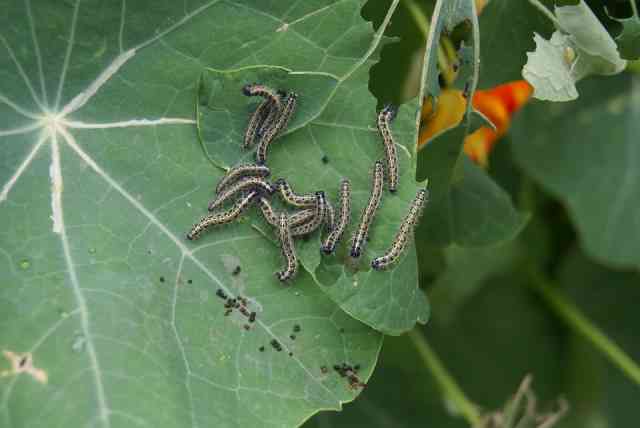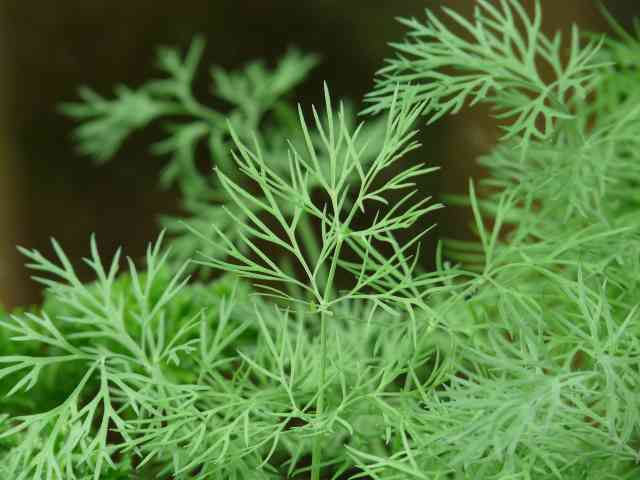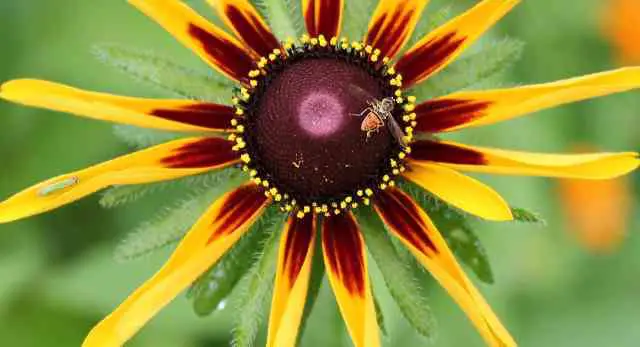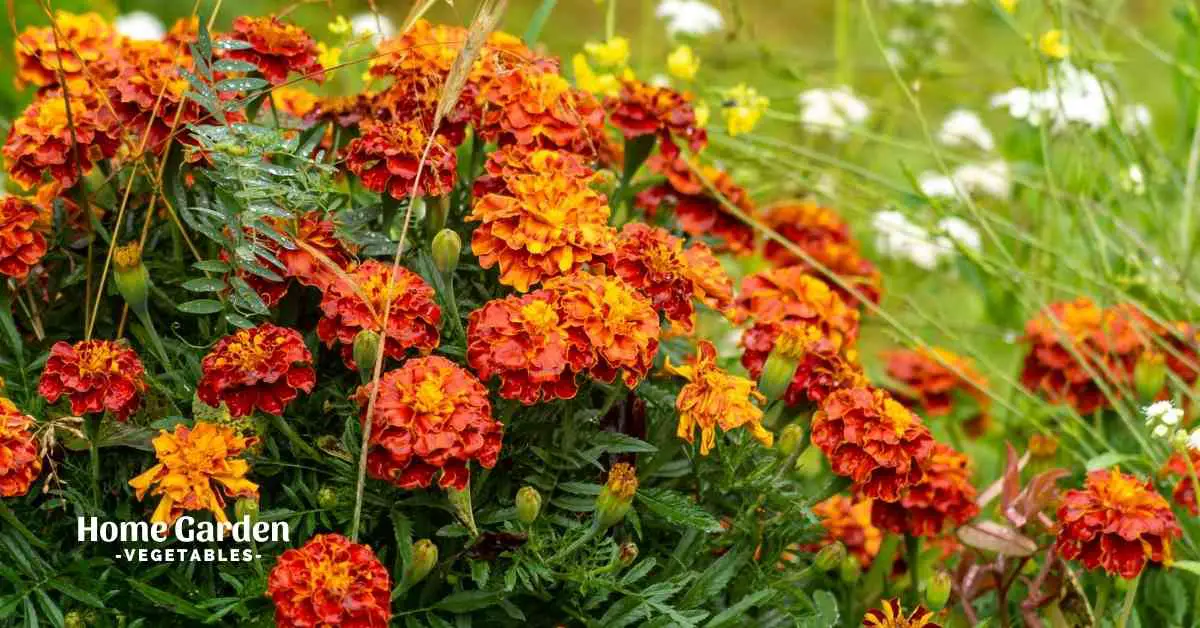Keeping pests out of your vegetable garden doesn’t always have to include strong pesticides. Pesticides kill the good bugs too, diminish the quality of harvest and lay a negative impact on the environment. There are several natural, environmentally friendly ways of getting rid of bugs, companion planting being one of them. Grow plants that repel the common vegetable pests among your edible plants to keep them growing healthy, without fighting for survival against critters. This post will give you some ideas on what to grow if you want to drive off insects that bother your vegetables.

Top 10 Plants That Repel Vegetable Garden Pests
Here is a list of plants that work wonderfully as natural pest repellents in your garden. Plant them among your vulnerable crops to save them from pest damage.
Reader Poll: What online courses would interest you?
Basil
Other than being a popular culinary herb, basil also acts as a pest repellent for the surrounding plants. It repels mosquitoes and houseflies, so you may also want to keep a potted basil plant just outside your front door to keep the pests from coming in.
Marigolds
The strong smell of marigolds deters nearly all insects, including mosquitoes, plant lice, Mexican bean beetles, nematodes, and aphids. Among other pests, it will even keep rabbits away. Plant them alongside potato, tomato, eggplant and pepper to keep the bugs out and protect the harvest against any damage.
Chrysanthemums
Chrysanthemums is an excellent insect repellent. It naturally contains a compound called pyrethrum that repels pests. This compound is a common ingredient of many artificial pest repellents. Instead of using pesticides, you can grow chrysanthemums near your vegetable crops to keep out ants, roaches, Japanese beetles, spider mites, ticks, nematodes, bed bugs and fleas. The plant repels almost all pests and is ideal for companion planting with most vegetables, including tomatoes. However, avoid planting them near lettuce.
Subscribe to our newsletter!
Bay Leaf
Bay leaves are a common ingredient in many recipes, including soups and stews. Other than its culinary uses, it’s also a good pest repellent to grow in your vegetable garden. It will help keep away flies, ants and cockroaches. It’s a slow growing plant. A faster way to deter pests from your garden is to sprinkle some store-bought bay leaves around your most vulnerable crops to keep the pests out.
Garlic
Garlic is another popular culinary ingredient and poses several health benefits. Among all the other attractions of growing garlic, it has a strong smell that deters several common garden pests. Grow garlic around your crops to keep out Japanese beetles, carrot root flies, spider mites, aphids, cabbage worms, slugs and many other insects that may harm your vegetables.
Dill

Dill deters many insects, including aphids, squash bugs, and spider mites. However, they are not good companions for tomatoes since they attract tomato hornworms. Avoid planting dill near tomatoes or any plants from the nightshade family.
Petunias
Petunias don’t just brighten up your garden but also repel many pests for the rest of the plants in your garden. Growing petunias will keep asparagus beetles, many kinds of aphids, leafhoppers, tomato worms and many other pests away from your garden.
Nasturtiums
Nasturtiums have a different approach to solve your pest problem, but it’s just as effective. They are called a ‘trap crop’ since they drive pests away from the surrounding plants and attract them to their own leaves. Aphids love nasturtiums and will rather feed on them than bother your cabbage plants or other vegetables. Cabbage moths, whiteflies, squash bugs, and striped pumpkin beetles will stay away from your vegetable crops if you have nasturtiums growing nearby.
Chives
Like other alliums, chives have a strong smell that deters most insects. If you have chives growing on your property, you won’t find Japanese beetles, carrot rust flies or aphids bothering your garden plants. It even works at keeping rabbits out of the garden.
Geraniums
Geraniums make popular bedding plants with the beautiful flowers they give. You can also grow them in pots and hanging baskets. Other than their ornamental use, they also keep away many kinds of pests, including leafhoppers and mosquitoes.
Plants That Attract Beneficial Insects

An indirect approach to cater to your pest problem is to grow plants that attract beneficial insects into your garden. Beneficial insects not only increase pollination and resulting fruiting in your garden, but they also feed on pests to keep their population under control.
To attract good bugs into your garden, introduce host plants for them that will provide pollen and nectar. In addition, plants that offer shelter also encourage them to visit your garden. Zinnias attract beneficial insects to keep the pests out. In addition, they also increase pollination activities to increase the yield of squash, beans, cucumbers and other vegetables.
Mint, fennel, daisy and chamomile flowers attract predatory wasps and hoverflies. Thyme, rosemary and other low-growing plants offer shelter for ground beetles. Sunflowers also attract pollinators into the garden. The aim is to create a complete natural ecosystem in your garden that will keep pest damage to a minimum, increase pollination and bring huge harvests.
Conclusion
Now that you have a list of plants that repel vegetable garden pests to choose from, grow some of these in your garden to bring diversity and keep the pest population down. With these pest repellent plants you can naturally ward off pests without the need to resort to chemical means. Chemical pest control isn’t good for your vegetables or the environment and should only be practiced in severe conditions if all other techniques fail.

